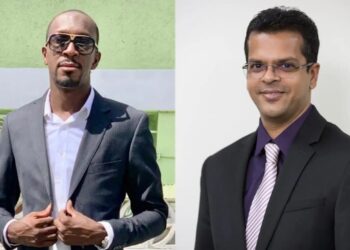Opposition Member of Parliament (MP) Jermaine Figueira, in emphasising the critical role of cultural promotion in preserving and celebrating cultural identity, particularly within diasporic communities, has spoken out publicly in defence of ‘Freedom Boss’ advocacy for the West Indian Day Parade held annually in New York, despite the critics. Speaking on the significance of such efforts, Figueira insisted that the annual Labour Day celebrations in New York, a prominent event for the Guyanese community, and a key platform for showcasing Guyana’s rich cultural heritage.
Marlon Jacobs, widely known as “Freedom Boss,” he observed, has been instrumental in organising events that promote Guyanese artists and culture, both locally and in the diaspora. Figueira in a public missive, acknowledged Jacobs’ contributions over the years, noting that his efforts have provided crucial opportunities for Guyanese artists to display their talents on an international stage. These events not only allow artists to share their music, dance, art, and cuisine but also serve to enhance Guyana’s cultural brand within the broader Caribbean context.
To this end, he notes however, recent public disputes involving Jacobs and a prominent political activist have raised concerns, leading to calls for boycotts of Jacobs’ Labour Day event. Figueira has since expressed disappointment over the politicisation of cultural events, stressing that such occasions should be seen as opportunities for unity rather than division. He warned that boycotting events designed to promote Guyanese culture could have detrimental effects, depriving artists of valuable platforms and undermining efforts to promote the nation’s cultural identity on a global stage. Figueira further emphasised the importance of separating political disagreements from cultural promotion to ensure that the latter can flourish. He pointed out the significant challenges involved in organising large-scale cultural events, particularly in a foreign country, and underscored the need to recognize and support the work of promoters like Jacobs. Figueira asserted that Jacobs’ contributions are vital to the success of these events, which not only benefit artists but also support the broader Guyanese community by fostering national pride and unity. In conclusion, Figueira called for the community to acknowledge the value of Jacobs’ efforts in promoting Guyanese culture and to support his initiatives, regardless of political differences. He stressed the importance of cultural events as a unifying force, advocating for a collective commitment to ensuring their success for the benefit of Guyanese artists and the preservation of the nation’s cultural identity.













